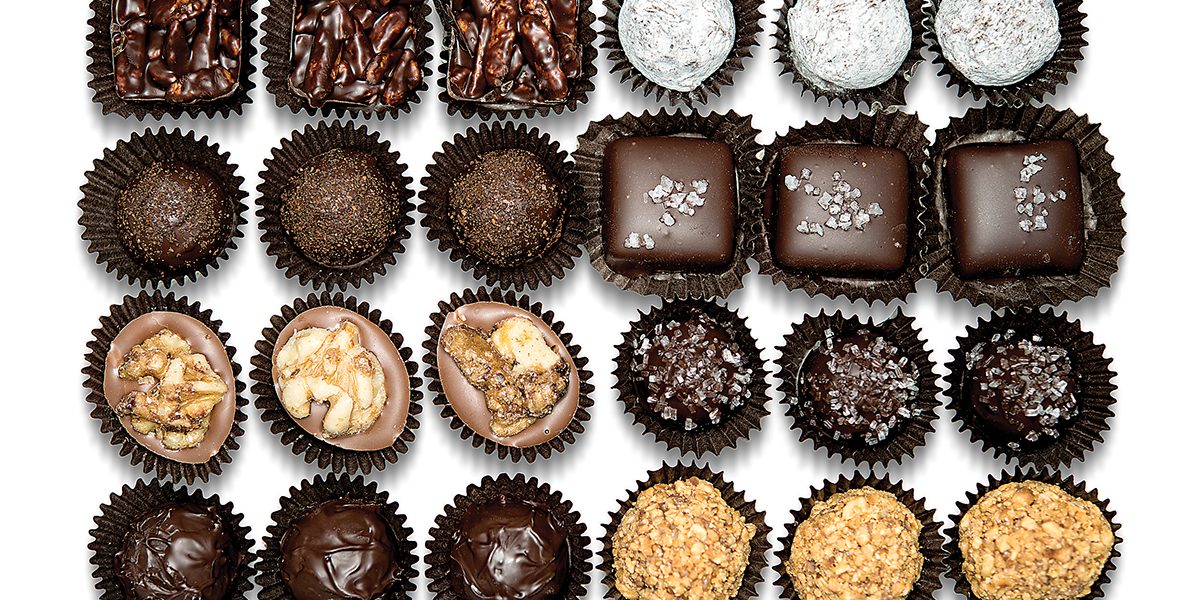Food & Drink
Sugar Rush: Chocolatiers
Where to find the most tempting treats.
Glarus Chocolatier
2046 York Rd., Timonium, 410-252-6601.
Behold
the red-and-white flag and the exquisite displays of handmade truffles,
dark rochers, and walnut giandujas, and you might swear you’re in
Switzerland. You’re not, but you are in a Swiss chocolate shop. Owner
Ben Hauser was weaned on the art form by his Swiss-born chocolatier dad,
Ruedi (who has his own chocolate shop in Rhode Island).
Editor’s pick: Coffee truffles—dark chocolate, cream, and coffee ganache sprinkled with crushed espresso beans.
Cacao Lorenzo
1818 Pot Spring Rd., Timonium, 410-453-9334.
Years
ago, while traveling abroad for his job in medical sales, Larry
McGlinchey discovered fine French chocolates. Back on home soil, he made
a career change and opened a French salon-style chocolate shop.
Editor’s pick: The white bars—a winning trifecta of cocoa butter, vanilla, and sugar.
Kirchmayr Chocolatier
9630 Deereco Rd., Timonium, 410-561-7705.
Long
before chocolate stores made their mark in the ‘burbs, A. Kirchmayr
Chocolatier set the standard for European chocolate shops. Twenty-six
years later, owner Albert Kirchmayr continues to practice the art of
German chocolate-making.
Editor’s pick: Chocolate-covered hazelnuts.
The Velvet Chocolatier
10403 Stevenson Rd., Stevenson, 410-365-9883.
These
elegant chocolates get a lot of buzz. Just ask Oprah Winfrey, who gave
them a shout out in her magazine O, or Julia Louis-Dreyfus, who
discovered them while filming Veep in Baltimore.
Editor’s pick: The caramel cups with dark chocolate and sea salt.
Wockenfuss Candies
Several locations including 6831 Harford Rd., 410-483-4414.
Open
since 1915, Wockenfuss harks back to simpler times when
chocolate-covered marshmallows and coconut crèmes were a food-pyramid
staple. Now, a fourth generation of family is involved.
Editor’s pick: Classic almond bark—whole roasted almonds buried beneath slabs of dense dark chocolate.
Rich History Fun Fact
The
name chocolate comes from the Aztec word “xocalati,” which means bitter
water. The truffle was named after the black truffle fungus because of
the way it looked.
